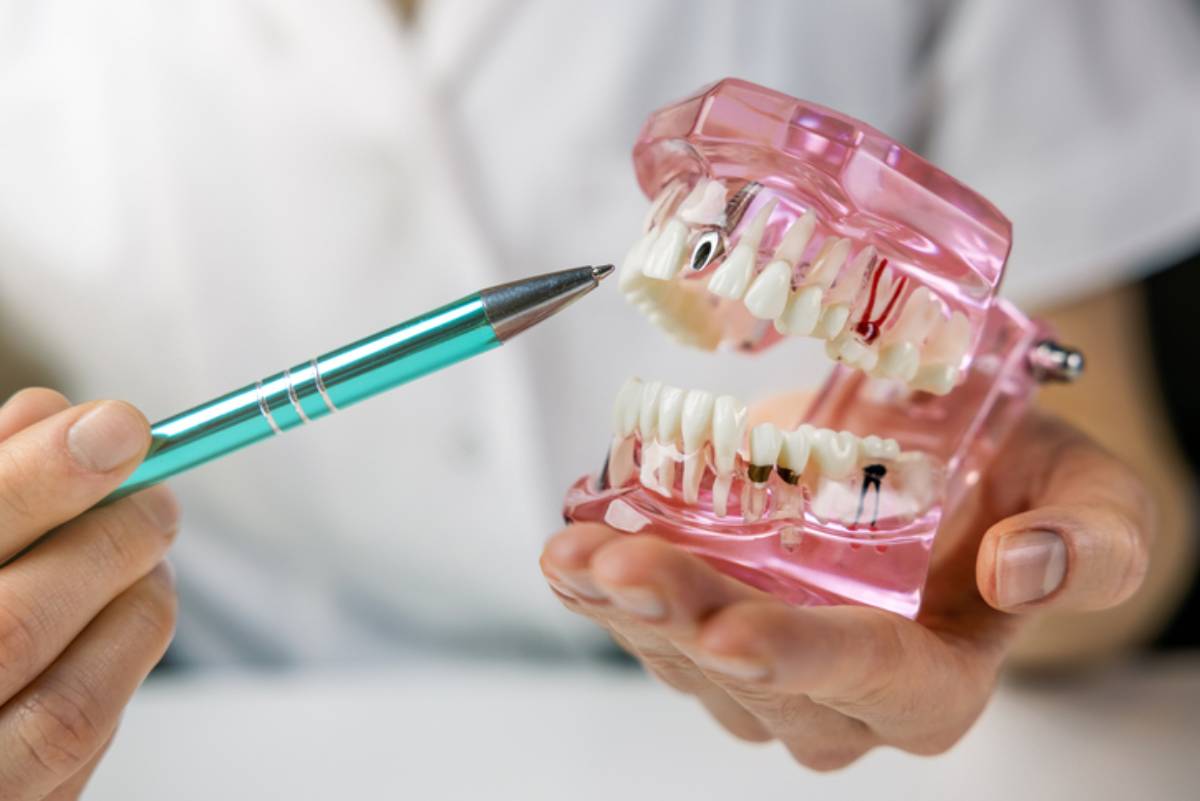A dental bridge is one of the methods for replacing missing teeth. A bridge can replace one tooth or several missing teeth in a row. But can dental bridges attach to implants, and what are fixed dental bridges? In this article, we address these questions and discuss other common questions about fixed dental bridges.
Can Dental Bridges Attach to Implants?
A dental bridge can attach to implants. This type of dental restoration is called an implant-supported bridge or a fixed dental bridge. Traditional bridges typically rely on natural teeth on both sides of the gap (sometimes, only one tooth can support the bridge).
Implant-supported bridges are attached to metal posts surgically placed into the jawbone. Implant-supported bridges are often recommended for patients who need to replace two or more consecutive teeth.
Advantages of Implant-supported Dental Bridges
The main advantage of implant-supported bridges is that they do not put additional strain on the natural neighboring teeth. Often, natural teeth that support traditional bridges can wear out faster. This is avoided with implant-supported bridges.
Additionally, implant-supported bridges can help prevent bone resorption—a natural process of bone density loss that occurs when you are missing your teeth. Implants that are placed in the jawbone will stimulate it, similar to your natural teeth, thus preventing a decrease in its density. Preserving the structure of the jawbone will also help prevent changes in facial structure.
Who Is a Good Candidate for Implant-supported Dental Bridges
The main disadvantage of implant-supported bridges is that not everyone is a good candidate for this type of dental restoration. Typically, the following criteria are considered before determining if a patient can have implant-supported bridges:
- Good overall condition of oral health (no gum disease or severe tooth decay)
- Sufficient jawbone density
These factors are important for successful implant placement and healing. Since implants are placed directly into the jawbone and subsequently fuse with it, your doctor has to make sure that the bone will be able to support the implant. Before the procedure, patients typically have scans or X-rays to determine the condition of the bone.
Gum disease is a chronic infection of the gum tissue that can spread to the jawbone and destroy its structure, thus preventing implant placement or healing when implants are placed. Tooth decay can also cause implant failure or infections due to active bacterial growth in the mouth.
How Long Do Implant-supported Bridges Last?
Implants that support your dental bridges can last for decades and often a lifetime. However, dental bridges typically require replacement every 10 to 15 years. The longevity of your bridges will depend on the material they are made of (zirconia and porcelain-fused-to-metal bridges tend to last longer than porcelain ones), the efficiency of your oral hygiene, the condition of your oral health, and your dietary and lifestyle habits.
Is It Painful to Get Implant-Supported Dental Bridges?
The procedure of getting implants that will support your bridges can cause some discomfort. While you are likely not to feel any pain at all during the surgery thanks to anesthetics, you are likely to experience some pain, swelling, and bruising during the recovery that can last several weeks.
Once the implants are successfully healed, the bridges will be affixed to them. This part of the process typically does not cause any significant discomfort.
Get Dental Bridges at Valley Alder
Do not hesitate to make an appointment with an experienced dentist at Valley Alder to get traditional or implant-supported dental bridges. Our specialists will carefully examine your case to offer you an optimal solution accommodating your goals and oral health needs. We are looking forward to your visit.


